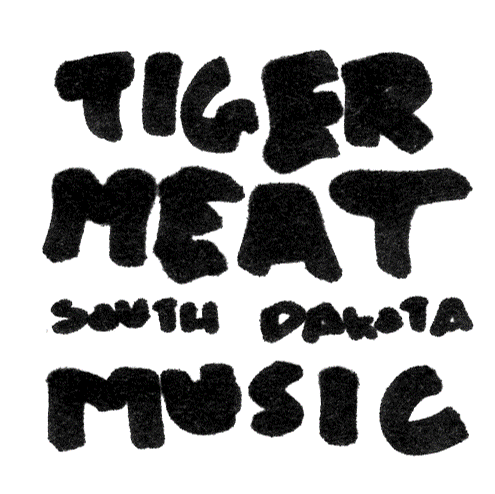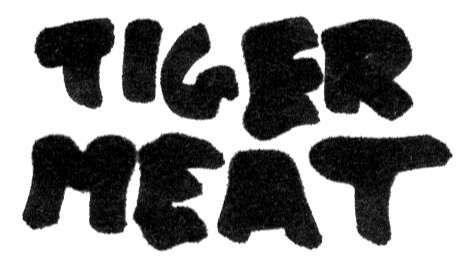Luke Tatge
Daytime: A Soap Opera Musical (Official Cast Recording)
2019 | Soundtrack
— track 1: “Nothing But a Soap Star”
Luke Tatge: I started [Sioux Falls Stage magazine] at the very end of 2019. We were sitting in the living room and I was lamenting that it's so hard to get news coverage for arts stuff — since they got rid of The Link in the Argus [Leader] and 605 [Magazine] doesn't really cover it — so then we were sitting on the couch and Bob [Wendland] fell asleep because it was, like, midnight on a weeknight. And then an hour later I shook him and woke him up and was like, "Hey, I'm starting a magazine. I just got my business license on the state website." He's like, "Okay..." [laughs] and so it just kind of went from there. I hooked up with the [Sioux Falls] Arts Council and they fiscally sponsored me so I could use their nonprofit status to get grant funding. That's been a game changer. And that's when the gallery owners approached me like, "Hey, we saw this. Would you do the same thing for visual arts?" So then I started [Sioux Falls Gallery magazine] last year. And then I have the annual Stage Awards event that I've been doing, I produce and put that on, I do all the writing for it too, and get all the hosts, and do all the marketing and stuff. And then I co-own Good Night [Theatre Collective] with Bob and do all the marketing for that, and do directing, and writing. And then I technically have a 40-hour a week job as well [laughs]. So yeah, it's a little wild.
//\\//\\//
I grew up in Benson, Minnesota. Growing up, musically, I took piano lessons from when I was a kid until I graduated high school, did all the contests and the guilds. I was lucky enough to have the U of M Morris campus really close, so I was able to take lessons there when I was in high school, And then I played trumpet all through junior high, and high school, and through college [at Augustana University]. So those are kind of my instruments of choice. And I've always been a choir singer, but not really much of a soloist. I dabbled a little bit in songwriting in high school, just because the professor I took piano lessons from, that was part of her annual thing, we always had a recital where we had to compose our own song every year. So that's what got me hooked on it in the first place.
I didn't even really touch theater until I met Bob, honestly. I was a senior, and he was a junior, and we were both directing the homecoming variety show at Augie. He was directing, I was music directing, and that's how we essentially met and started dating. He obviously is very into theater, and has been for a long time, so that started to pique my interest. I'd always had an appreciation for it, but I'd never really been involved in it. So just observing him do it, and him working in children's theater, and him at the [Washington] Pavilion, that really got me into it. And then when he and some of his cohorts started Good Night, I was heavily involved as sort of an unpaid intern for the first couple years, and then bought-in in season three, and the rest is kind of history.
He and I worked on a musical, even before Good Night was a thing just because we felt like, "Why not just sit in our apartment and write something?" The first one we wrote [Salem] would have been in 2015. We workshopped that at Augie as part of their [Claire Donaldson New Play Festival]. Bob wrote the book and I wrote the music and lyrics. But then when Good Night started, one of the interesting things was that you have to pay to do known and established musicals [laughs]. And so there's honestly kind of a benefit to doing original work because you don't have to pay royalties. So season two of Good Night is when my coworker [Ruth Sturm] and I wrote David & Lucy, which was very loosely based on our own very codependent work friendship [laughs], and was in the vein of work sitcoms, but with music. That was Good Night's first original show, and it was kind of a surprise hit because I think a lot of people went in with low expectations, and because "original local musical" is a scary phrase. And now we do an original show every single year, it kind of became a hallmark of the company. I write all of them, so that's what I spend most of my time musically doing now. In season three of Good Night, I wrote a musical called Daytime that was sort of a sendup of 80s soap operas, which was super fun, and really had wild hair and costumes, which is great. Season four, we did Alvin Fletcher's Surprise 34th Birthday Party right before the pandemic hit, which was such a blast, and just a ridiculously stupid show. And then, we had to delay it a couple times because of Covid, but eventually at the tail-end of season five we did Reality Wives, which was sort of a sendup of Real Housewives, which was also really great, did that at the Orpheum. During Covid, I wrote a children's musical. DAPA [The Dakota Academy of Performing Arts] actually commissioned me to adapt a local author's [Tom Roberts] book into a short musical that they could tour to the middle schools, that was called A New Norm. Most recently, this past January was Suspect, which was a murder mystery, true crime musical. So those are the seven. The other nice thing is I've had the privilege of directing my own shows, which is very unique for playwrights. Usually they have to hand it off. My husband keeps reminding me as a theater professional, “This is not something that normally happens. You don't usually get to produce and direct your own shows. So enjoy it.”
//\\//\\//
The premise [of Daytime] is, it's all set around this failing 80s soap opera that's on the verge of being canceled, and so the actors in the show, six of them, played actors on the fictional show within the show. And so we sort of jumped between scenes from this really terrible, melodramatic, ridiculous pretend show, and then to scenes behind-the-scenes in the dressing room area. The actors know that they're getting canceled and just start pulling out all the stops, and going off script, and doing whatever they want, and it just goes completely off the rails. And because it's the 80s, the costumes are crazy, the hair is huge, the music is very, like, Cyndi Lauper, poppy, super 80s music. It was my first show that I wrote by myself, which was very different. The two prior, I just wrote the music and lyrics, [but for Daytime] I also wrote all the dialogue. So that was exciting. And writing in that really heightened, melodramatic style, it was really fun to trust your worst instincts. Because as someone who writes for a living, like for my real job, writing scripts of just awful, tacky dialogue on purpose was really, really fun. I would say it had vibes of the movie Soapdish, if you've ever heard of that movie with Sally Field and Whoopi Goldberg. Just very zany, madcap, ridiculous twists and whatnot.
I keep getting requests with the subsequent [musicals] from people, as soon as the show's over they're like, "Are you going to do a soundtrack? I need to hear the music again." And I'm always like, "Ah, it's so much work to do that." And honestly, the reason I did it with [Daytime] is that I had gotten grant funding from the South Dakota Arts Council, and part of that funding was to be put toward doing an original cast recording. So Daytime, weirdly, is the only one that we have [a soundtrack] for. I knew I wanted to [record the soundtrack] late in the rehearsal process, when everyone was feeling really good about their parts, and get it before we go up for the public, so that we'd be able to sell the CDs at the show. I looked for a place to do it, and a lot of it was out of my price range. And then I stumbled upon Earsay, which is no longer. I reached out, and they gave me a great deal. They were like, "We're about to close down, you actually are going to be our last recording session before we close," which was sort of a cool experience. So the gentleman who did the session was very determined to make it a great last hurrah. It worked perfectly for what we needed, and everyone had a blast, and it felt great.
//\\//\\//
This is the time of year when we're doing season planning. There will definitely be an original work in the next season. It's going to be our largest scale original we've ever done. I'm connecting with a local musician, Yi-Chun Lin — she's the principal violist for the [South Dakota] Symphony [and] she started the Sioux Falls Chamber Music Collective. We feel emboldened now, after a few shows that went really well, that we can do a large cast production. It will have, hopefully, a live orchestra as well. So that's coming up next season. I've got a lot of work on that to do, and I'll just keep doing magazines, and directing shows, and writing shows, and marketing shows, and selling tickets, and all that good stuff. And also, we're adopting a baby. So there's that too. Our social worker home study is tomorrow, actually. We've been cleaning constantly for the last two weeks straight, so yeah we're in pretty good shape [laughs].
I think Suspect has been a proof-point for us. [It] was a big departure from what I've done previously, which has been very like, joke, joke, joke, very silly, funny, over the top stuff. Suspect was more of a black comedy, and it wasn't just madcap. It had jokes, but there were thriller moments, and serious moments. And the nice thing was our audience still was into it, and still connected with it, which is hopefully telling me that it's no longer necessarily about like, "They're coming because the title sounded interesting," or, "They're coming because it's supposed to be funny." They might just be coming because they know Good Night's original shows are always good. And they know they're always going to have a good time.
LUKE TATGE’S ESSENTIAL SOUTH DAKOTA ALBUMS
Burlap Wolf King — Bitter Honey (2017)
Tenenbaums — Favorite Dreams (2015)
Sun Daze — Deserted (2021)
We All Have Hooks for Hands — The Shape of Energy (2009)
SOURCES
Tatge, Luke. Interview. By Jon Bakken. 8 February 2022.








